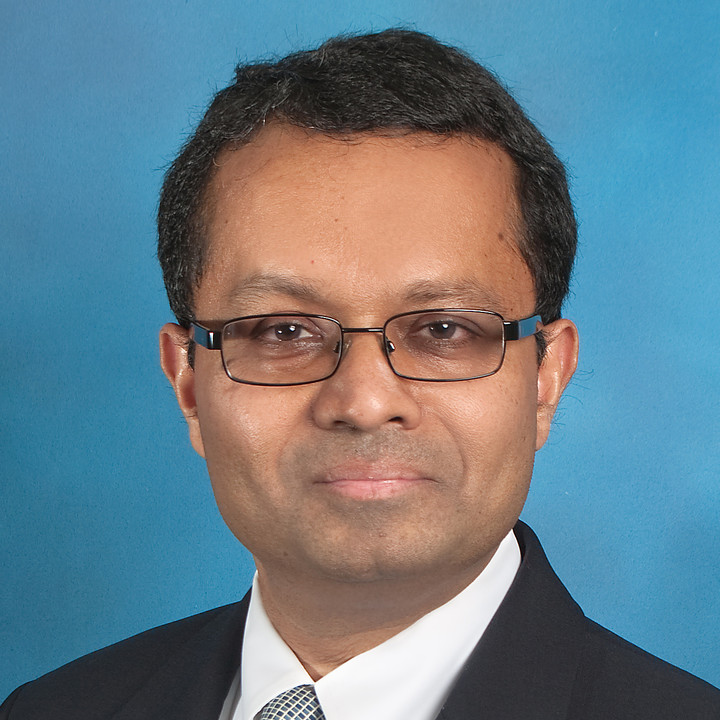Rice Business professor explains Postal Service financials
The U.S. Postal Service was not created to be a traditional profit-making business, according to K. Ramesh, the Herbert S. Autrey Professor of Accounting at the Jones Graduate School of Business.


The U.S. Postal Service was not created to be a traditional profit-making business, according to an accounting expert at Rice University’s Jones Graduate School of Business.
K. Ramesh, the Herbert S. Autrey Professor of Accounting at the Jones School, published a FAQ on his LinkedIn as a “pragmatic way to understand the forces at work and how they must be reshaped if reforms are desired.”
Profitability was not meant to be the sole criterion to evaluate the performance of a national postal service with important social objectives.
“Of course, the Congress clearly wanted an efficient postal service that can operate within the statutory mandate. For instance, the USPS has also used measures such as total factor productivity, on-time delivery and customer satisfaction to monitor its performance, ”he wrote.
However, the Postal Accountability and Enhancement Act (PAEA) that took effect in 2006 amended the 1971 Postal Reorganization Act (PRA) — which established the USPS — and created an additional obligation for the Postal Service of roughly $5.6 billion per year for 10 years, Ramesh wrote.
“More importantly, the feasibility of making such payments would have required drastic changes to the strategy and operations of the Postal Service, which may not have been even possible given its statutory mandate,” he wrote. “Not surprisingly … the Postal Service has defaulted on $33.9 billion in PAEA-specified funding requirements.”
The legislative mandates of the PAEA and the PRA do not clearly state if the Postal Service “could (or should) ever function similar to a business entity and make the necessary transformational changes to become ‘profitable,’” Ramesh wrote.
Maintaining “operational effectiveness” throughout the country is an important social asset, Ramesh argues.
“If Congress is worried about postal delay that impacts the delivery of essential medicine and other time-sensitive items to all communities, then its immediate focus should be not on structural issues such as long-term financial stability, but on the near-term operational effectiveness in meeting the service needs of a broad cross section of communities in the U.S.,” Ramesh wrote.
By focusing on keeping the Postal Service running instead of reallocating funds and resources, Congress could ensure mail delivery in an “uninterrupted and timely fashion” through the end of year 2020, Ramesh explains.
Featured Faculty:
Oil-field services speed adoption of clean energy tech
Vikas Mittal, a business professor and oil field service company expert at Rice University, is hopeful but skeptical about the ability of the clean energy initiatives to successfully deliver profits. The professor believes there might be some “herd mentality” psychology at play.
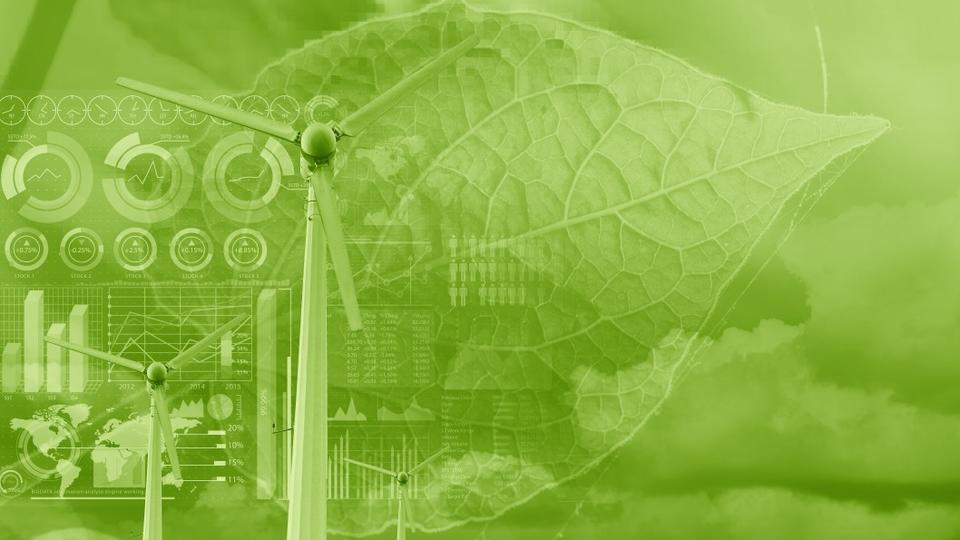
Meet the MBA Class of 2022: Pedro Martinez-Berrios
Being from Venezuela, at a young age, I learned the value of energy and oil in society. More specifically, I learned the importance of the good management of oil and natural resources. Rice is a globally-ranked university and, in my point of view, it has the strongest energy and finance program.
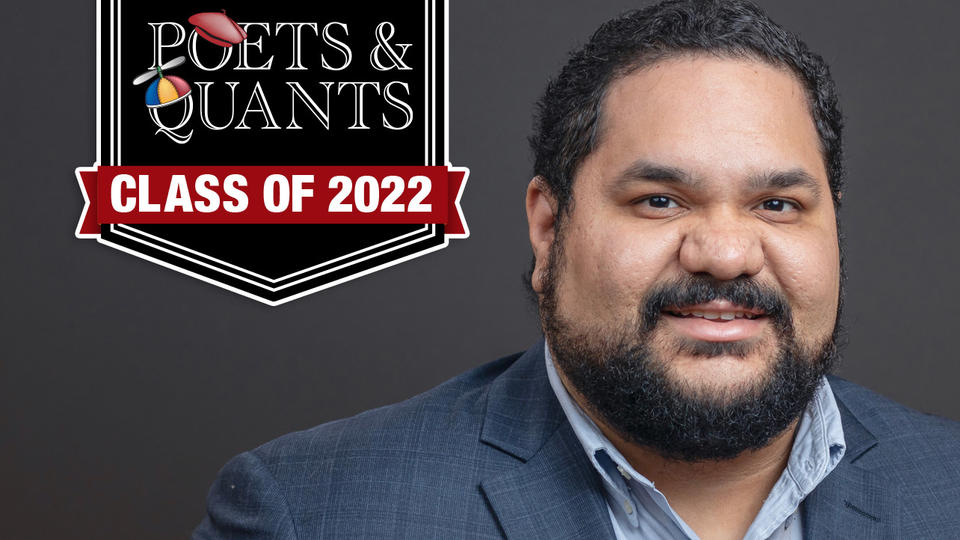
As Hurricane Laura nears Texas coast, experts available from Rice
As Hurricane Laura nears the Texas coast, Rice University has a number of experts that can discuss a wide variety of storm-related topics.


As Hurricane Laura nears the Texas coast, Rice University has a number of experts that can discuss a wide variety of storm-related topics.
Rice’s hurricane experts, by topic area, include:
Hurricane and flooding risks and impact
Phil Bedient, Rice’s Herman Brown Professor of Engineering and director of the Severe Storm Prediction, Education and Evacuation from Disasters (SSPEED) Center, can discuss flooding issues that arise from tropical depressions, hurricanes and other severe storms. Bedient has studied Hurricane Harvey’s unprecedented flooding and massive 2015 and 2016 floods in Houston and Louisiana. He can speak to the effects of urban development practices on these and other floods.
Jim Blackburn is co-director of Rice’s SSPEED Center, director of Rice’s undergraduate minor in energy and water sustainability and a professor in the practice of environmental law in Rice’s Department of Civil and Environmental Engineering. He can speak about how widespread property development has impacted storm and flood risks. Blackburn can also address the environmental and economic sustainability of regional hurricane protection proposals, including structural options such as dikes, levees and gates in and around Galveston Bay and nonstructural alternatives that aim to use coastal wetlands and prairies as natural storm barriers.
Energy industry
Ken Medlock, director of the Center for Energy Studies at Rice’s Baker Institute for Public Policy, can address the potential impact on gasoline prices and exports of oil, refined products and liquefied natural gas (LNG) when infrastructure is affected for an extended time.
Rachel Meidl, fellow in energy and environment at the Baker Institute, can discuss how to ensure energy infrastructure resilience when dealing with catastrophic weather events like hurricanes.
Mark Finley, fellow in energy and global oil at the Baker Institute, can discuss the intersections of energy, economics and public policy during times of severe weather.
Houston, Texas and urban issues
Stephen Klineberg, founding director of Rice’s Kinder Institute for Urban Research and professor emeritus of sociology, can discuss Kinder Houston Area Survey data on the persistence of concerns about flooding among area residents, even 2 1/2 years after Harvey.
Katherine Ensor, the Noah Harding Professor of Statistics in Rice’s Brown School of Engineering, can discuss the Texas Flood Registry (formerly known as the Hurricane Harvey Registry), which is committed to better understanding the health and housing effects of major natural disasters, and the recently launched COVID-19 Registry, which provides real-time information on the spread of COVID-19 in the region, who is being affected and how.
Corporate response and leadership
Tom Kolditz, director of Rice’s Doerr Institute for New Leaders, can discuss crisis leadership strategies with examples taken from hurricanes Katrina and Sandy; he uses the two events in his presentations, and they are included in his book “In Extremis Leadership: Leading as If Your Life Depended on It.” The Doerr Institute is the most comprehensive leader-development initiative at any top 20 university.
Terry Hemeyer, adjunct professor in Rice’s Jones Graduate School of Business, can discuss crisis management and communication challenges that communities, the public, corporations and government entities face in times of disaster. Pierpont, a communications firm where Hemeyer serves as executive counsel, featured him in a post titled “Crisis Management: Controlling the Chaos.”
Politics
Mark Jones, professor of political science and fellow in political science at Rice’s Baker Institute for Public Policy, can discuss government reactions to storms and the politics in play as well as public opinion on policies related to hurricanes and flooding.
Bob Stein, the Lena Gohlman Fox Professor of Political Science, can talk about local government reaction to storms and the politics involved in decision-making.
Psychology
Danielle King, an assistant professor of industrial and organizational psychology in Rice’s School of Social Sciences, is an expert in the study of employee and organizational resilience. She can discuss resilience in the face of catastrophic events such as hurricanes. A New Orleans native who lost but subsequently helped to adapt her family business after Hurricane Katrina, she seeks ways to create resilience in individuals and groups at work.
To schedule an interview with one of the experts or for more information, contact Jeff Falk, director of national media relations at Rice, at jfalk@rice.edu or 713-348-6775.
Houston Business Journal names 40 Under 40 Class of 2020 honorees
The Houston Business Journal will once again honor an exceptional group of business and community leaders in the 40 Under 40 Class of 2020. Among the honorees are Rice Business alumni Chris Bentley and Daran Gaus.
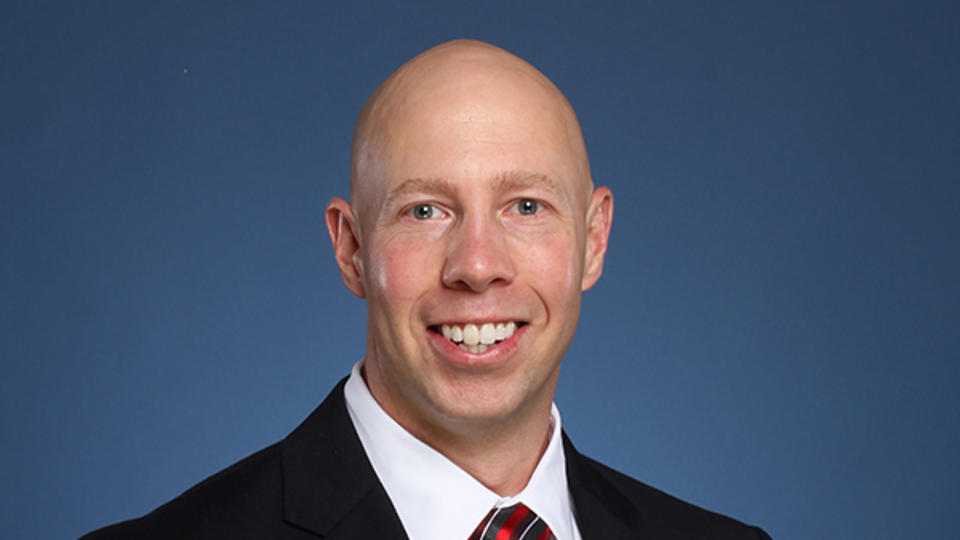
Houston's Professional MBA Program
You Belong Here
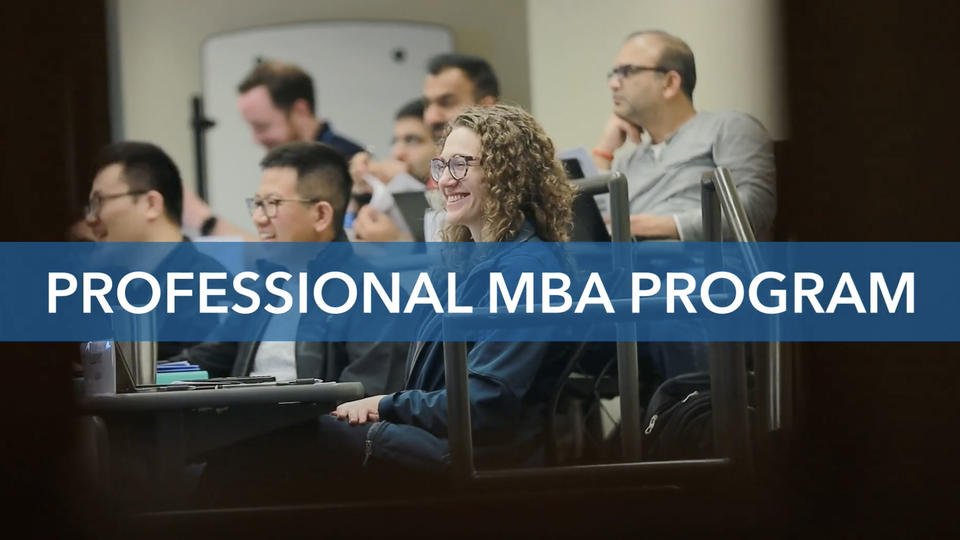
You Belong Here at Rice Business: Houston's Professional MBA Program
Rice University's Jones Graduate School of Business is located in the center of Houston, TX. Being in the heart of the nation's energy hub, sharing a home with the Johnson Space Center and neighboring the largest medical center in the world, Rice University is perfect for professionals looking to accelerate their career in their own backyard. See yourself at Rice Business, because you belong here.
A Diverse Full-Time MBA
You Belong Here
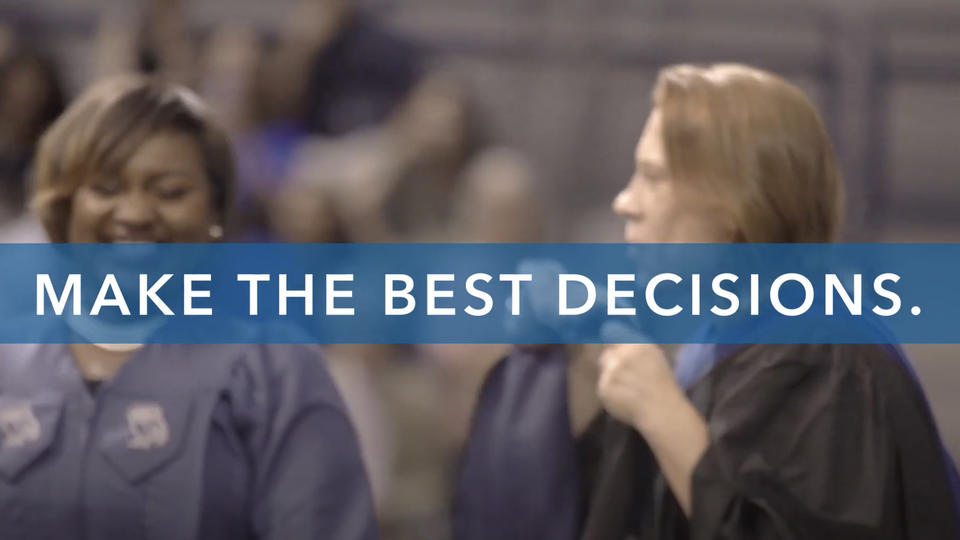
You Belong Here at Rice Business: A Diverse Full-Time MBA
Rice University's Jones Graduate School of Business sits in the heart of the nation's most diverse city, Houston, Texas. As such, our Full-Time MBA students benefit from the varied backgrounds of their classmates, peers and city in which they live and learn. Make the decision to join, because you belong here in Rice Business's Full-Time program.
Intentionally Small
You Belong Here
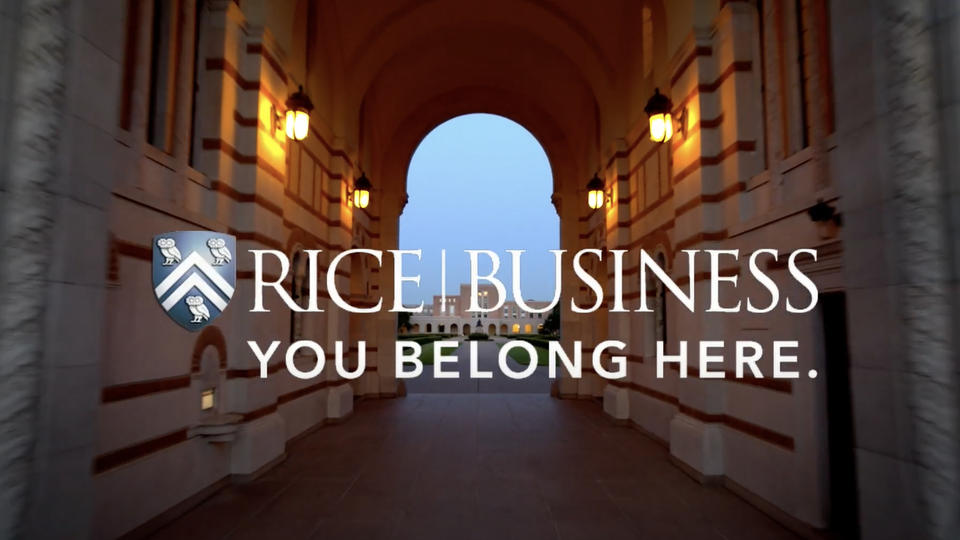
You Belong Here at Rice Business
Rice University's Jones Graduate School of Business's intentionally small classes foster an environment for greater growth among our students. Rice Business students benefit from individualized support from professors in a 6:1 student-to-faculty ratio, allowing for big connections and an even bigger future. See yourself at Rice Business, because you belong here.
